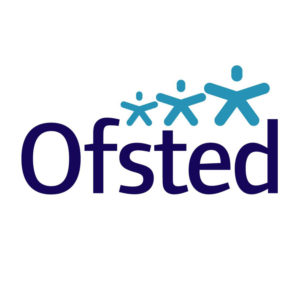Chapter Contents
- What is Mental Health?
- Promoting Good Mental Health and Emotional Wellbeing
- ISP Therapeutic Model
- CAMHS
What is Mental Health?
What is mental health?
Mental health concerns both our general psychological wellbeing, and mental health problems.
Psychological wellbeing:
Our psychological wellbeing includes our self-esteem, feelings of control, sense of belonging and purpose, and satisfaction with life. It helps us to cope with life and play an active part in relationships and work. With good mental health we can achieve our potential.
Psychological wellbeing doesn’t mean feeling happy all the time. Our feelings are affected by situations and it is natural to feel sad or angry if something bad happens. It is equally natural to feel anxious when things are going wrong. Part of developing good mental health and wellbeing in children and young people is helping them recognise that it is natural to feel different emotions. The important thing is that they can ask for help when they need it, and they know who can help them.
Mental health problems:
Mental health problems are diagnosable conditions that significantly interfere with our feelings and thought processes. They can affect our ability to cope with life and do the things that we need to do.
Some of these conditions are called ‘neuroses’ and these include depression and anxiety. They are considered to be extreme forms of normal emotional experiences, and are quite common.
Other conditions are known as ‘psychoses’ and these are less common. They involve altered states of reality, such as hallucinations (e.g. seeing and hearing things that no-one else can).
Mental health problems in childhood include:
- Eating disorders
- Attachment disorders
- Generalised anxiety
- Obsessive-compulsive disorders
- Depression
- Attention Deficit Hyperactivity Disorder (ADHD)
Promoting Good Mental Health and Emotional Wellbeing
The most important thing that all carers can do is to offer a secure base environment to children and young people. A secure base helps children to trust the adults who care for and are available to them. It also develops positive self-esteem and helps children develop some of the social, emotional and behavioural skills that promote good mental health. These include:
- Build and sustain friendships.
- Deal with and resolve conflicts.
- Solve problems both with others and alone.
- Manage strong feelings such as frustration, anger and anxiety.
- Recover from setbacks.
- Work and play co-operatively.
- Compete fairly and lose with dignity.
- Respect the rights of others.
Practical things you can do at home:
- Encourage children and young people to join local clubs so they get a sense of achievement from doing something they enjoy as well as forming new friendships.
- Celebrate achievements at school and support school work.
- Encourage children to express themselves, make choices and talk about how they feel.
- Do things together that enhance a sense of achievement such as cook a meal, bake a cake, go on bike ride, learn a new computer game.
- Do not overprotect children by avoiding challenging situations that may help them problem solve or develop emotional skills such as negotiating new friendships.
Young Minds website
Take the time to look at the Young Minds website and raise your own awareness about what young people themselves say helps them.
Here is a leaflet by Young Minds about self-harm. This leaflet is written for both young people and their families.
University of Oxford researchers have also released a helpful leaflet for parents and carers about self-harm.
Training opportunities: Mental Health Awareness, plus additional courses covering eating disorders, anxiety, psychosis, self harm, depression, suicide, addiction within the family, and drug awareness.
ISP Therapeutic Model
Our young people have often had a painful history that has deeply affected their development. We believe that these children need therapeutic care to reach their emotional, social and educational potential.
Our young people have experienced things as having gone very wrong in their lives and are likely to have been traumatised by this. This often results in behaviour that adults find difficult to manage at home and at school. We see our task as that of providing an integrated service connecting with the child or young person who is likely to be in a state of panic and distress. We aim to contain, understand, empathise and best manage their behaviour as we gradually help them to feel safe and able to develop within long term meaningful relationships.
The most crucial relationship for the child is with their foster family. Everyday caring experiences can be therapeutic, especially for children who have not received good enough parenting during their early years. We believe that our foster parents are in a strong position to meet the children’s emotional needs, but that you need our support to work through the challenges and difficulties that arise. As well as offering therapy to our children and young people, our therapy service also offers support to our foster parents.
Our therapy team includes psychotherapists, speech and language therapists and counsellors. We can also access support from psychiatrists and educational psychology services.
We can offer…
- Assessment and consultation regarding a child’s needs, and to support placement stability.
- Assessment of emotional, behavioural and therapeutic needs in preparation for permanence.
- Time-limited direct therapy with young people and/or their foster parents regarding mental health needs.
- Therapeutic parenting groups for foster parents.
- A range of ‘Reflective Practice’ groups for foster parents and staff.
Read about the impact of trauma and how to support children in our Trauma Hub.
Training opportunities: Find out about our Therapeutic Pathway training.
CAMHS
Most of our young people receive their therapy support from our therapists. Some, however, will receive a service from CAMHS (Child and Adolescent Mental Health Service). This is an NHS service that provides mental health assessment and treatment for children and young people. The service targets children with diagnosed or suspected mental health problems.
CAMHS teams include occupational therapists, child and family counsellors, specialist nurses, clinical psychologists, psychiatrists, social workers, family support workers and psychotherapists. Most local CAMHS services have waiting lists and it can be several months before a child is seen. If you think a child or young person would benefit from the CAMHS service, talk with your supervising social worker and the child’s social worker about your concerns straight away.



